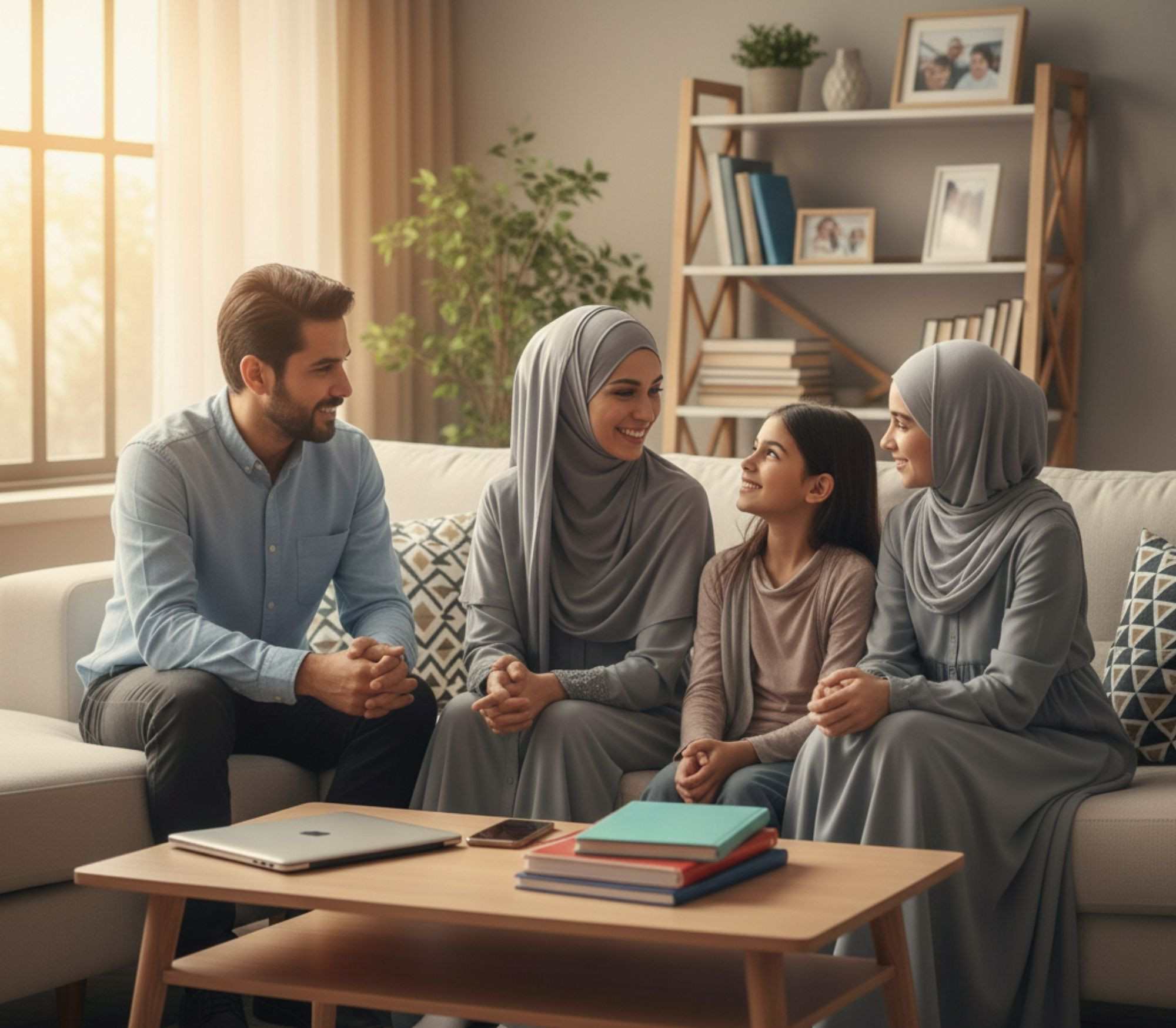
Blog
- Home
- Blog

- 2023-11-29
Family and Contemporary Challenges
Dr. Bilal Yassin In the era of digital media, information flow, multiple responsibilities, and the nature of work, and with the growth of some programs that threaten the family and its principles, the challenges facing the family and its components have increased. Since the family is the foundation of human societies and its pillar, caring for it in terms of formation, qualification, and impact is considered a top priority and a sacred mission.
By the family, we do not only mean the good upbringing of children, but we refer to the entire system. One of the most important elements of this system is the wise choice of life partner, reducing areas of disagreement that cloud the serenity of life and disturb its beauty. This is guided by our noble Prophet Muhammad (peace be upon him) when he said: "If someone with whose religion and character you are satisfied comes to you, then marry him. If you do not do so, there will be tribulations in the earth and much corruption." (Reported by At-Tirmidhi and others). In another narration, he said: "A woman may be married for four things: her wealth, her lineage, her beauty, and her religion. So, choose the one with religion, may your hands be rubbed with dust" (Agreed upon).
In this noble guidance, we find the basic criteria upon which the choice of a spouse is built. Although they are few in number, they are deep in meaning. Religion and ethics do not only mean performing religious rituals regularly and committing to ethical appearances, but they extend to material and moral competence, excellence in social behavior, good temperament, willingness to take responsibility, and enhancing marital relationships with patience and forgiveness.
Undoubtedly, this theoretical discourse is essential. Therefore, the family system needs supportive institutions and practical experiences to embrace the family in all its stages, providing it with conscious experience and practical knowledge that reduce areas of conflict and enhance tranquility and reassurance within the family and its surroundings.
One of the most important means that can contribute to strengthening the family and organizing it is training courses targeting young people approaching marriage, during the engagement period, and after marriage.
Several foreign, Islamic, and Arab countries have had rich experiences in training young people about to get married. Malaysia, for example, achieved significant positive effects, especially in reducing the divorce rate, which dropped to less than one percent.
Here, we emphasize that each society has its own characteristics that differ from others, whether in geography, population size, economic conditions, social nature, customary traditions, general culture, and other factors that make the training curriculum and its priorities vary from one environment to another. We also emphasize that training alone does not create a cohesive family but is one of the main factors that enhance the strength and cohesion of the family.
Therefore, the Development and Training Academy has dedicated a special section to family and society, aiming to crystallize a family program that contributes to strengthening the family, addressing the problems it faces, and developing modern mechanisms through previous experiences and successful models. This is done taking into account the specificity of the target groups and the nature of different environments.
- Share

